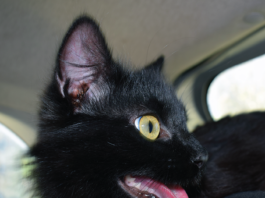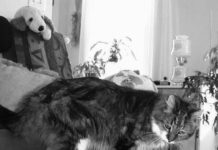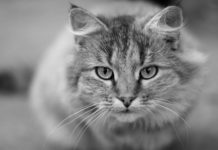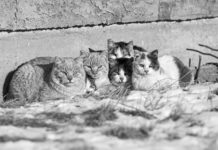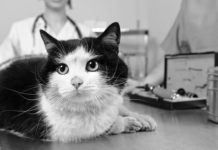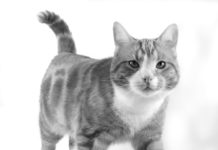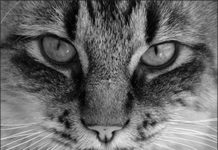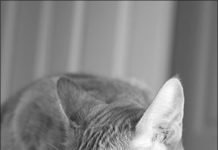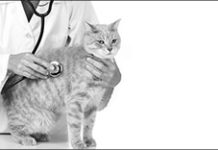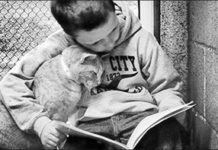Short Takes: June 2015
Updated guidelines on pain management from the American Animal Hospital Association and the American Association of Feline Practitioners are primarily intended for private practice veterinarians. The guidelines information-packed 18 pages cover the latest research and experts consensus on medications, but cat owners can find practical help, too. Examples: advice for the home environment and a new emphasis on complementary therapy.
Short Takes: April 2015
Reports of dogs improving the social skills of children with autism have been widespread. A University of Missouri researcher, however, has found that any pet in the home can increase the childrens assertiveness, such as introducing themselves and asking for information. Gretchen Carlisle, a research fellow at the Research Center for Human-Animal Interaction at the College of Veterinary Medicine, studied 70 families with autistic children ages 8 to 18. About half of them had cats. Her findings: Younger children bonded more strongly to smaller dogs than large ones, but parents reported strong attachments between their children and other pets, such as cats, fish or rabbits. It serves as evidence that other types of pets could benefit children with autism, Carlisle says.One caution from behaviorist Katherine Houpt, VMD, Ph.D., at Cornell: Children may have difficulty distinguishing real from stuffed animals, especially small animals like cats. Be sure that the autistic child is gentle with the cat.
Short Takes: March 2015
A new test for chronic kidney disease in cats has identified its onset an average of 17 months earlier than existing methods, according to a small study published in the Veterinary Journal. Researchers at Oregon State University and IDEXX Laboratory developed a biomarker - a substance indicating disease called SDMA - and used it in a controlled study of 32 older but otherwise healthy cats. When available commercially, a test based on the biomarker could alert cat owners and veterinarians to kidney disease through periodic checkups, researchers say.Chronic kidney disease is common in geriatric cats and often causes their death, says researcher Jean Hall, DVM, Ph.D., at Oregon State. Damage from it is irreversible, but this is an important advance, in that we should be able to identify the problem earlier and use special diets to slow the disease.
Short Takes: February 2015
An international team of researchers has analyzed results of the cat genome - the complete mapping of DNA and genes - to arrive at a greater understanding of cats domestication.They compared the genomes of domestic and wild cats and found that areas of the domestic cat genome differed significantly from their wild counterparts, including genes involved in the reward centers of the brain and the development of neurons that produce dopamine, which helps control the brains pleasure centers. The researchers say that this suggests that the first wild cats bred for domestication were those responding to rewards such as food and stroking.
Short Takes: January 2015
In little more than a decade, changes have taken place in veterinary medicine to help prevent cats developing malignant tumors at the site of certain vaccinations. However, 22,000 cats in the U.S. still develop injection site-associated sarcomas (ISAS) every year, and the tumors are often more aggressive and prone to recurrence than spontaneous ones.
Short Takes: December 2014
If you want to understand how your cat can effortlessly leap on counters, you could study takeoff velocity (TOV) and hind-limb length. Or watch Alley, who made the 2015 Guinness World Records as the longest-jumping domestic cat. Her broad jump: six feet, with her TOV from a standstill.
Short Takes: November 2014
Estimates are that osteoarthritis affects 90 percent of cats over the age of 12 years. Confirmation of the disease, however, can sometimes prove elusive. In the search for an accurate diagnosis, the Winn Feline Foundation has awarded a grant, funded by the animal health company Zoetis, to researchers at the University of Melbourne. Their goal is to develop a blood test biomarker - a molecule indicating an abnormal process - so the disease can be identified earlier.
Short Takes: October 2014
Surgeons at the University of Georgia Veterinary Teaching Hospital have used a Siamese cat’s stem cells to improve acceptance of his kidney transplant. The recently announced surgery on 4-year-old Arthur, performed in May, is the hospital’s second successful kidney transplant using feline adult stem cells.
Short Takes: September 2014
Researchers at North Carolina State have launched a study to determine if probiotics can protect kittens from deadly gastrointestinal disease. More than 15 percent of kittens at animal shelters in the U.S. die or are euthanized before 8 weeks of age because of illness. The majority have diarrhea or GI diseases, says the Winn Feline Foundation, sponsor of the study.
Short Takes: August 2014
We may think our cats have it easy, being fed and loved while living safely indoors, but nutritionist Tony Buffington, DVM, Ph.D., at Ohio State University College of Veterinary Medicine says cats can have a different perspective:
Short Takes: July 2014
Spending on pets will reach $59 billion this year, up 4.9 percent over 2013, according to the American Pet Products Association. The surprising category with the greatest proportion of growth last year: pet services such as boarding, training, pet sitting and grooming. It grew by 6 percent to $4.4 billion.
Exploring the Placebo Effect in Caregivers — Us!
The placebo effect has been the subject of frequent research in human medicine, with results ranging from the psychological — you expect to feel better taking a medicine and you do — to the physiological — endorphins in the brain and spinal fluid caused your improvement.


